English
Staff
Head of Department Mrs. S. Duke
Teacher Mrs C. Hinds
Teacher Ms A Brackenridge
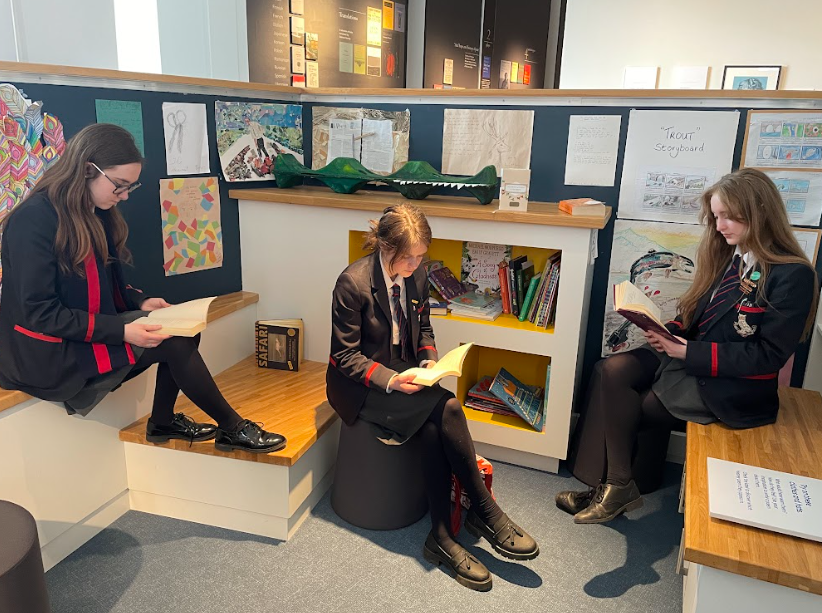 Curriculum
Curriculum
GCSE
Pupils will study the GCSE English Language and English Literature specifications offered by CCEA.
English Language
40% of marks are allocated to controlled assessment. 20% will be awarded for responses to Spoken and Written Language, and 20% for Speaking and Listening. Students will therefore be working towards their overall GCSE grade throughout their course of study.
|
CONTENT |
SUMMARY |
ASSESSMENT |
WEIGHTING |
|
UNIT 1 |
Writing for purpose and audience and reading to access non-fiction and media texts. |
External written examination. Assessed at the end of Year 11 1 hour 45 minutes Students respond to five tasks |
30% |
|
UNIT 2 |
Speaking and Listening |
Controlled Assessment Teachers assess the tasks and CCEA moderates the outcomes |
20%
|
|
UNIT 3 |
Studying Spoken and Written Language |
Controlled Assessment Teachers assess the tasks and CCEA moderates the outcomes |
20% |
|
UNIT 4 |
Personal or creative writing and reading literary and non-fiction texts. |
External written examination 1 hour 45 minutes Students respond to four tasks |
30% |
ENGLISH LITERATURE
In English Literature our students will have the opportunity to study a range of literary texts. They will initially study John Steinbeck’s classic novella Of Mice and Men and a range of unseen prose texts taken from the nineteenth century. Following this, they will explore a range of poetry collated under the theme of relationships. In Year 12, they will study the Shakespeare play Macbeth and J.B. Priestley’s An Inspector Calls to complete this course.
|
CONTENT |
ASSESSMENT |
WEIGHTING |
|
UNIT 1: The Study of Prose |
External written examination. Assessed at the end of Year 11. 1 hour 45 minutes Students answer two questions, one from Section A and the set question from Section B Section A is closed book |
30% |
|
UNIT 2: The Study of Drama and Poetry |
External written examination 2 hours Students answer two questions, one from Section A and one from Section B Both sections are open book |
50% |
|
UNIT 3: The Study of Shakespeare |
Controlled Assessment 2 hours Students complete an extended writing task based on a theme Marked by teachers and moderated by CCEA. |
20% |
AS/A2
Studying CCEA English Literature at ‘A’ Level offers the opportunity to engage critically and creatively to texts from a variety of eras. Across a wide range of novels, plays and poems, you will deepen your understanding of the changing traditions of literature.
By joining an A Level English literature class, you will broaden your horizons and open your mind to new perspectives. You will have to construct well supported arguments and appreciate alternative interpretations of texts.
At AS level you will study the following texts:
Frankenstein by Mary Shelley
The Crucible by Arthur Miller
Poems by Robert Frost and Seamus Heaney.
All texts are assessed by examination, and the papers are closed book.
It is important that students of English Literature have a love of reading, that can be applied to the set texts and a range of other literary works.
Careers
Related Degrees and Qualifications:

Tiffany Murnaghan, former English Literature student at Lurgan College, has blogged about her experience as a first year student of English Literature and Creative Writing at Queen’s University (Belfast). You can read about it here.
Nathan Hylands, initially studied Animal Biology at the University of Stirling, before completing a MA in Journalism at Ulster University in Coleraine. He is a recipient of the National Council for the Training of Journalists (NCTJ) Journalism Diversity Fund (JDF) and also received training in London under the Centre for Investigative Journalism (CIJ) Lyra McKee Training Bursary. Nathan has recently secured a permanent position as a Broadcast Journalist for U105 Radio. The news enthusiast also works freelance for the BBC Radio Ulster Countryside programme and writes for the Farming Life and Farm Week newspapers.

Employability Skills & Professions Associated with English:
What can I do with an English Degree?

Industry Trends and Insights:
Labour Market Information suggests a demand for professionals with strong communication skills and literary expertise across various sectors, including publishing, media, and education. Emerging trends include digital content creation, multimedia storytelling, and content marketing strategies.
Evidence suggests that creativity is increasingly valued by employers across all sectors of the economy. Olly Newton, (Executive Director, Edge Foundation), suggested that creativity “comes out time and again at the top of the league table of skills that employers are looking for, not just in the UK but internationally”.
The value of the creative sectors to the UK economy is well documented. According to Nesta research the creative industries are growing twice as fast as other industry sectors and will create 900,000 new jobs in the next 10 years.
According to a recent parliamentary report (2023), students must have genuine, substantive opportunities to study creative and artistic subjects at key stages 3 and 4. This is vital to enable them to develop creative skills and to support a diverse talent pipeline for our creative industries, which are a key sector of the UK economy, and the many other businesses that are crying out for creative skills.
Alumni Stories:
Discover what some of our former English students are doing now:
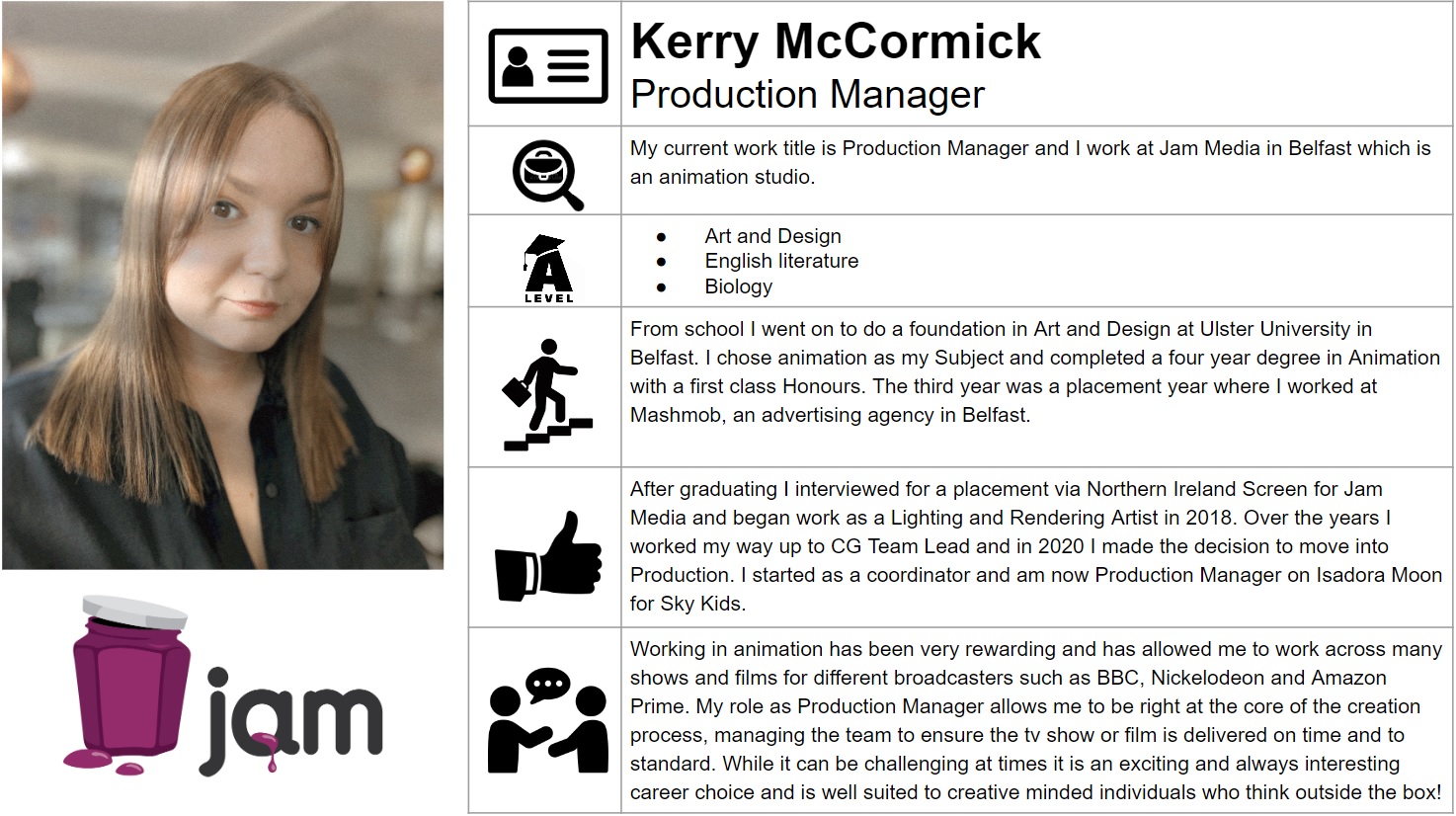
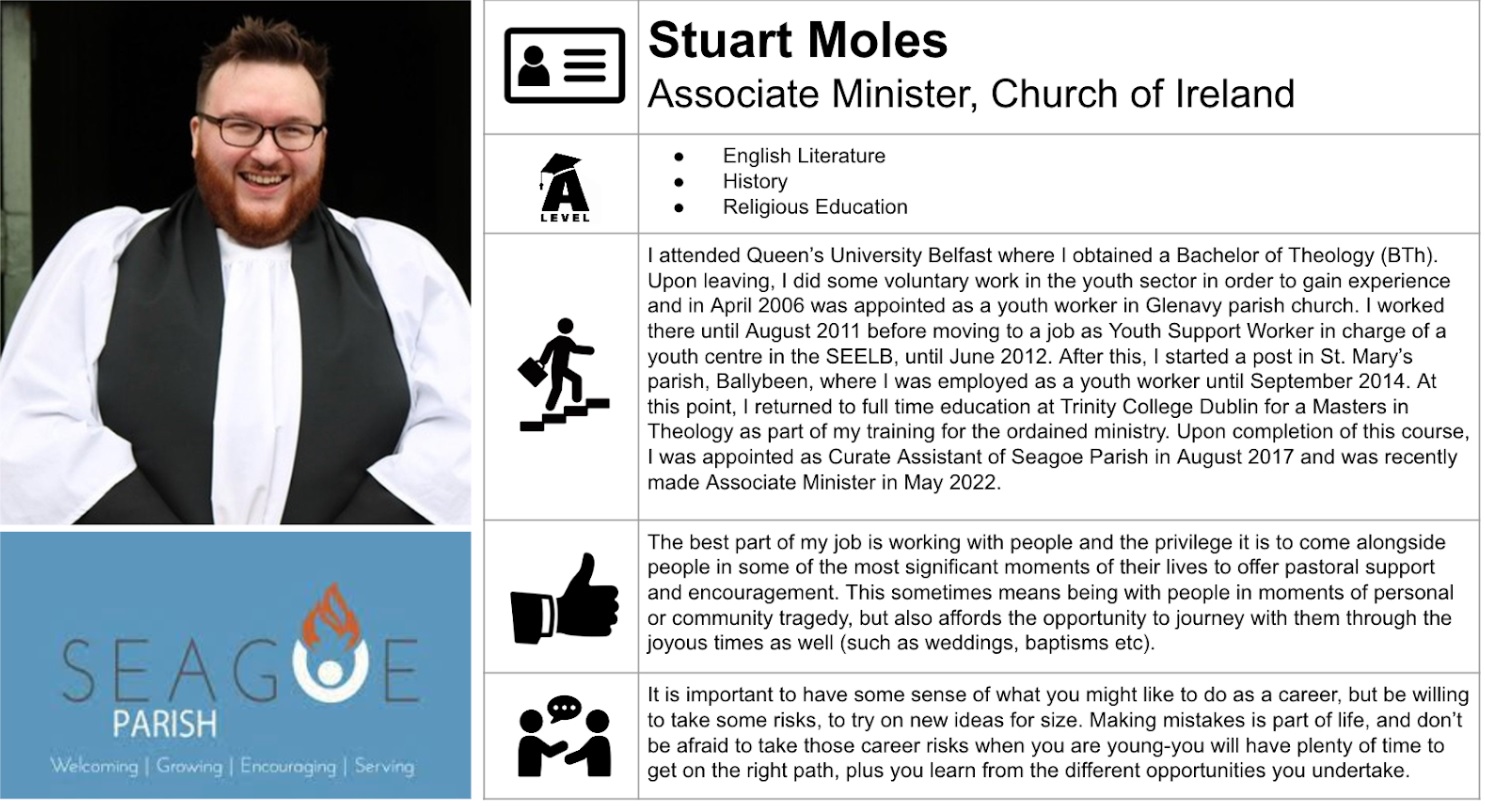

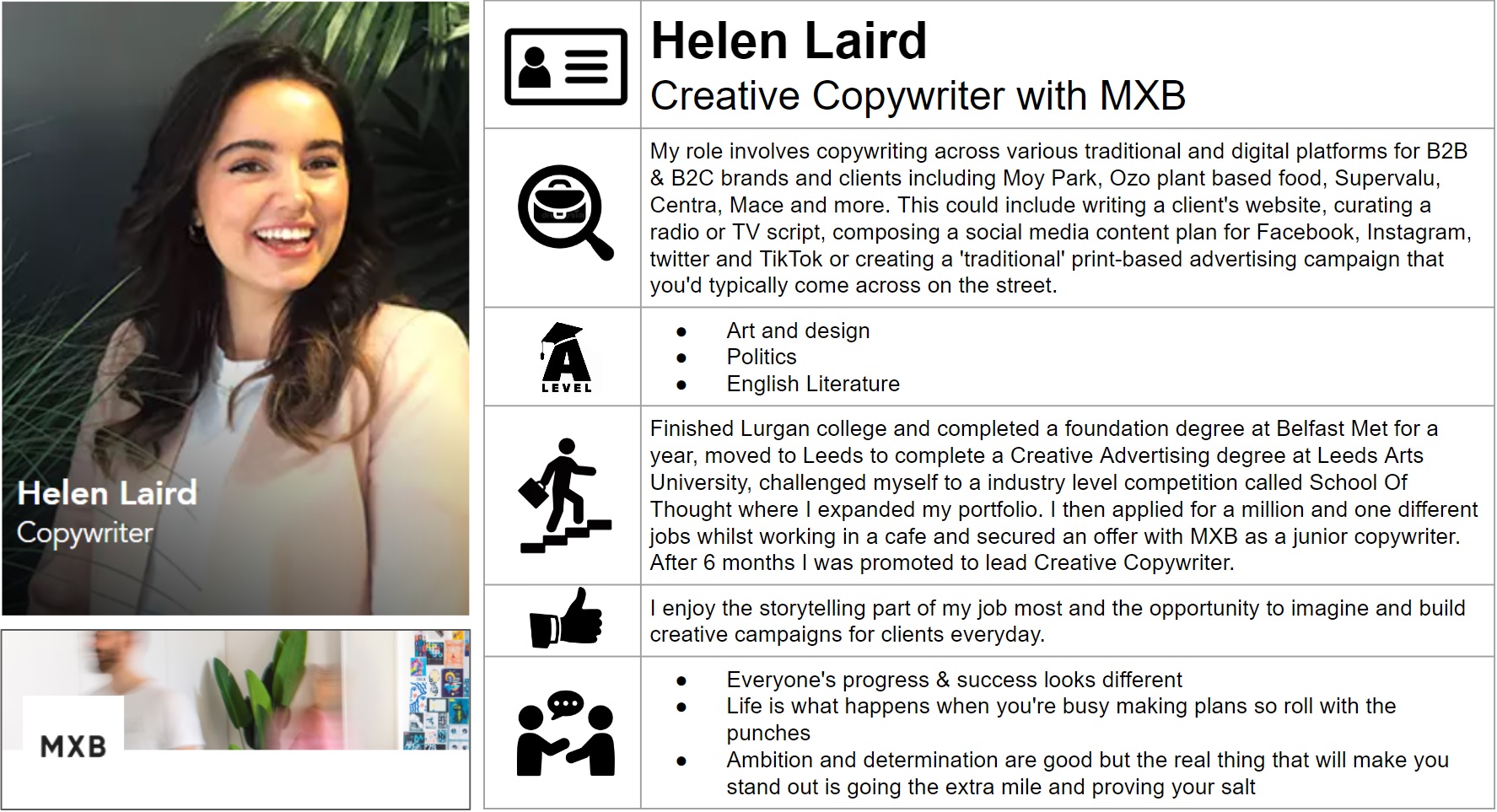
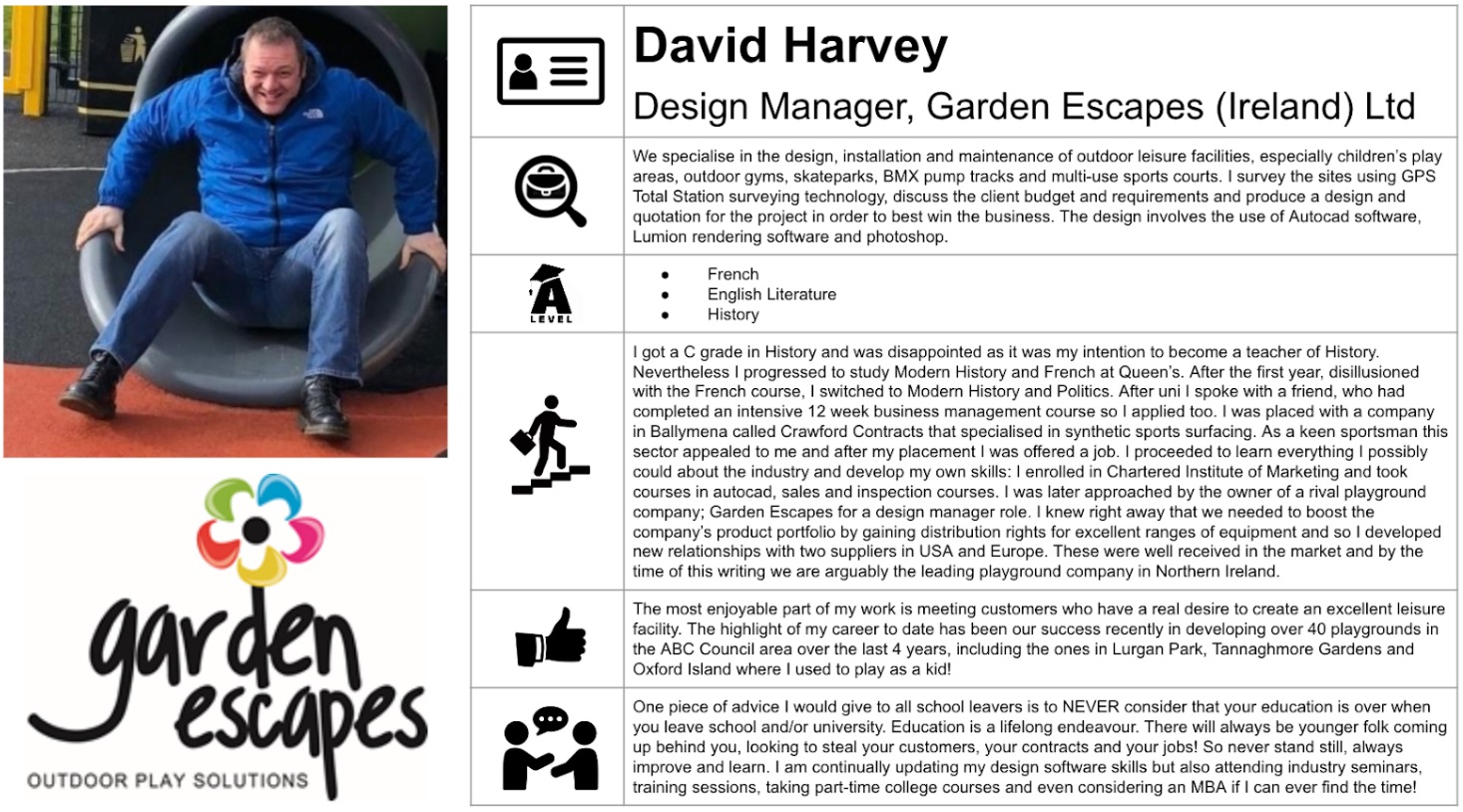
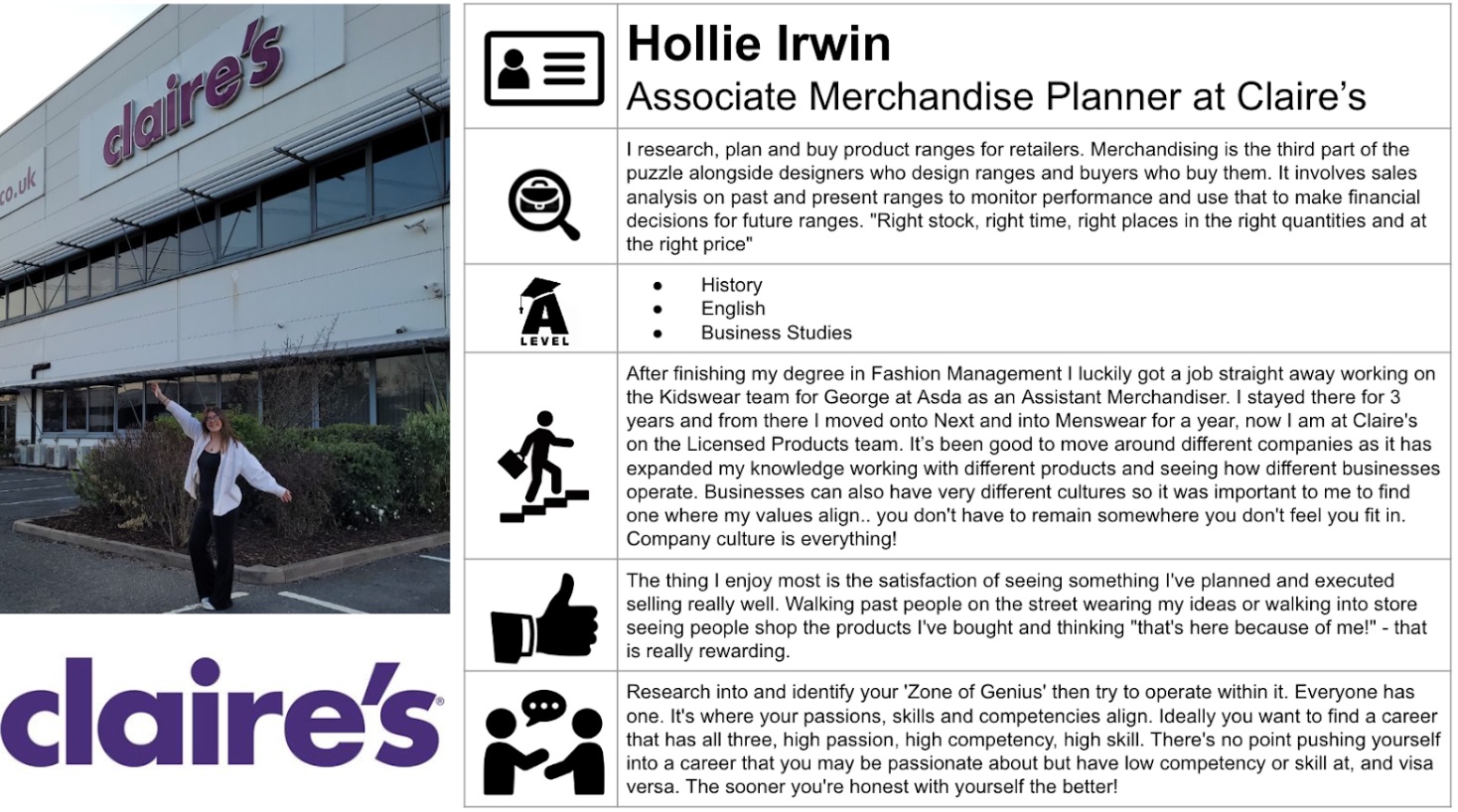
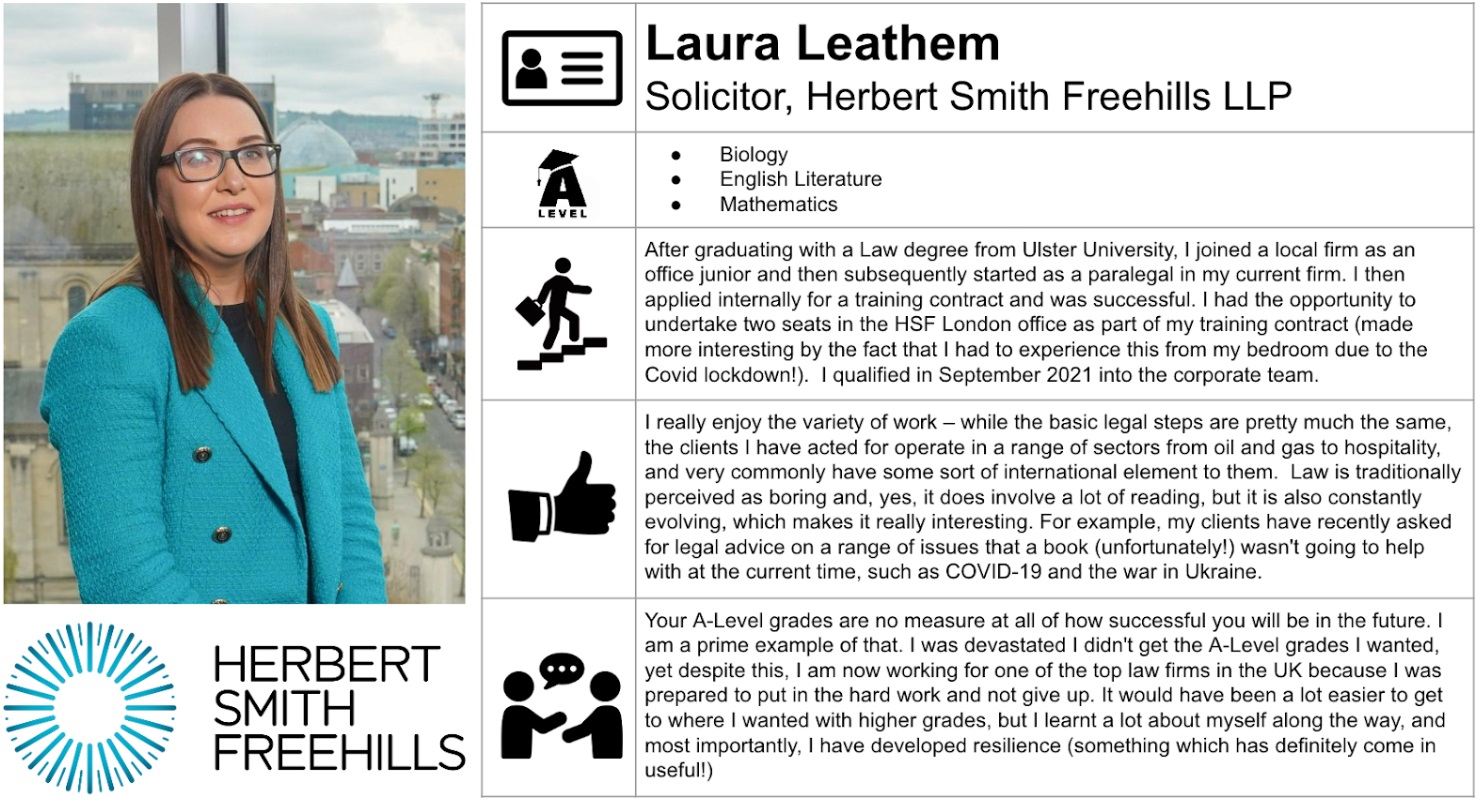
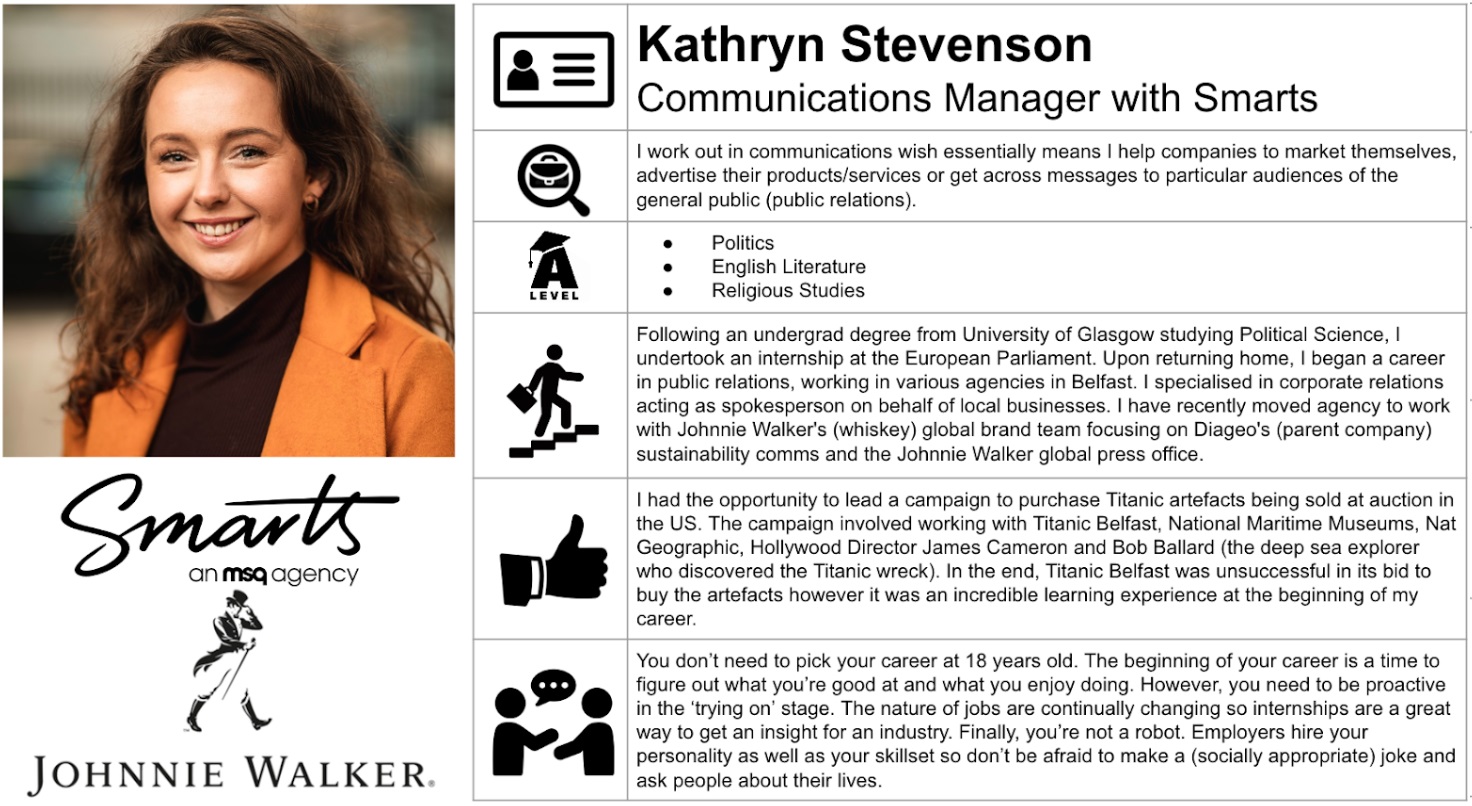
Employer Partnerships:
The English Department acts as a link between our students and Screenworks. Screenworks, funded by the Department for Communities through Northern Ireland Screen and delivered by Into Film, is an exciting scheme to help young people in Northern Ireland aged 14-19 learn more about careers in the screen industries through hands-on work experience opportunities.
We have also established a link with Matthew Thompson [founder and presenter of Best of Belfast]. Through our partnership with Matthew, and ‘Best of Belfast’, students will gain insight into writing, storytelling, podcasting, blogging, editing and so much more.

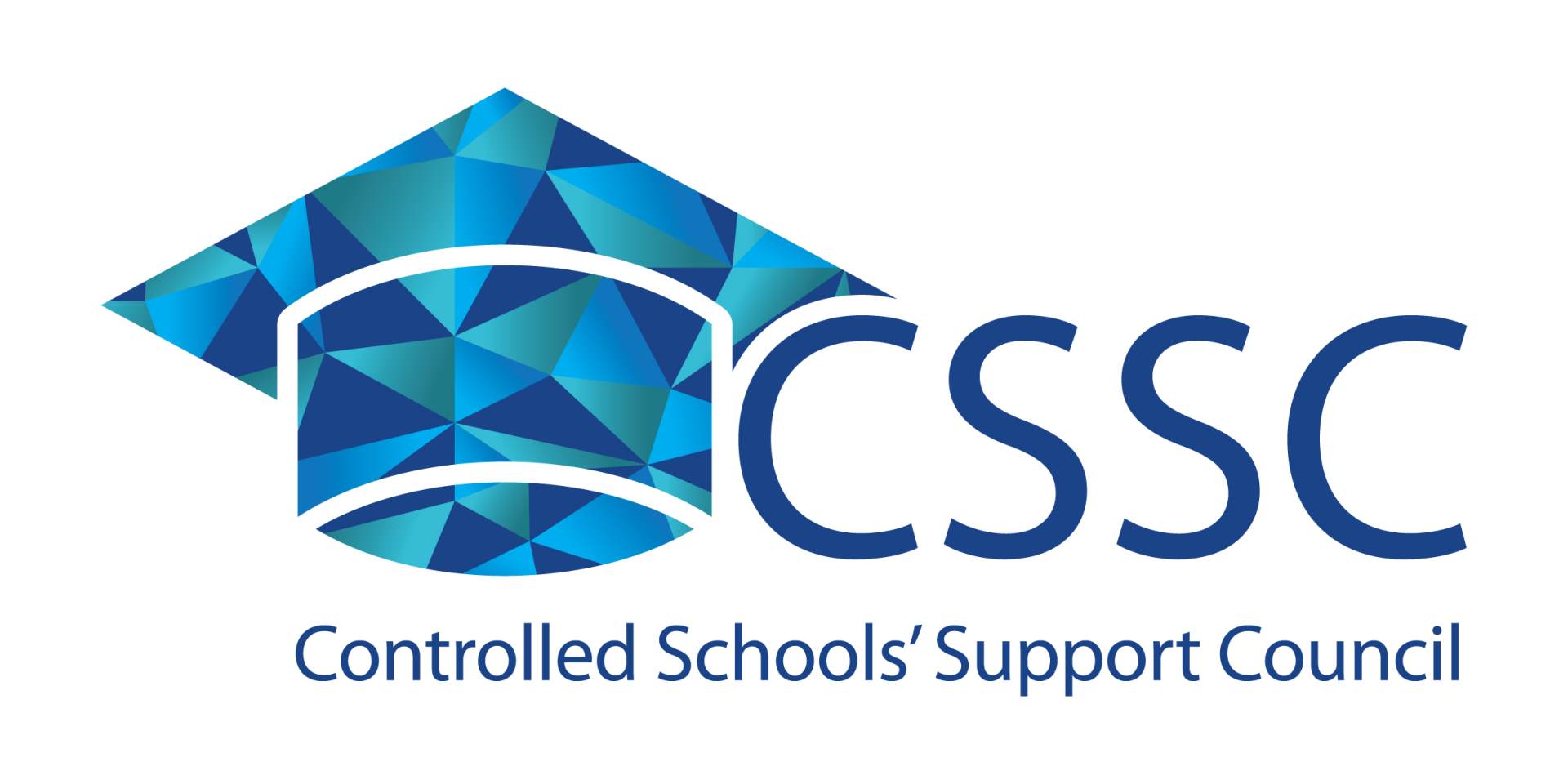
Close
Social Media